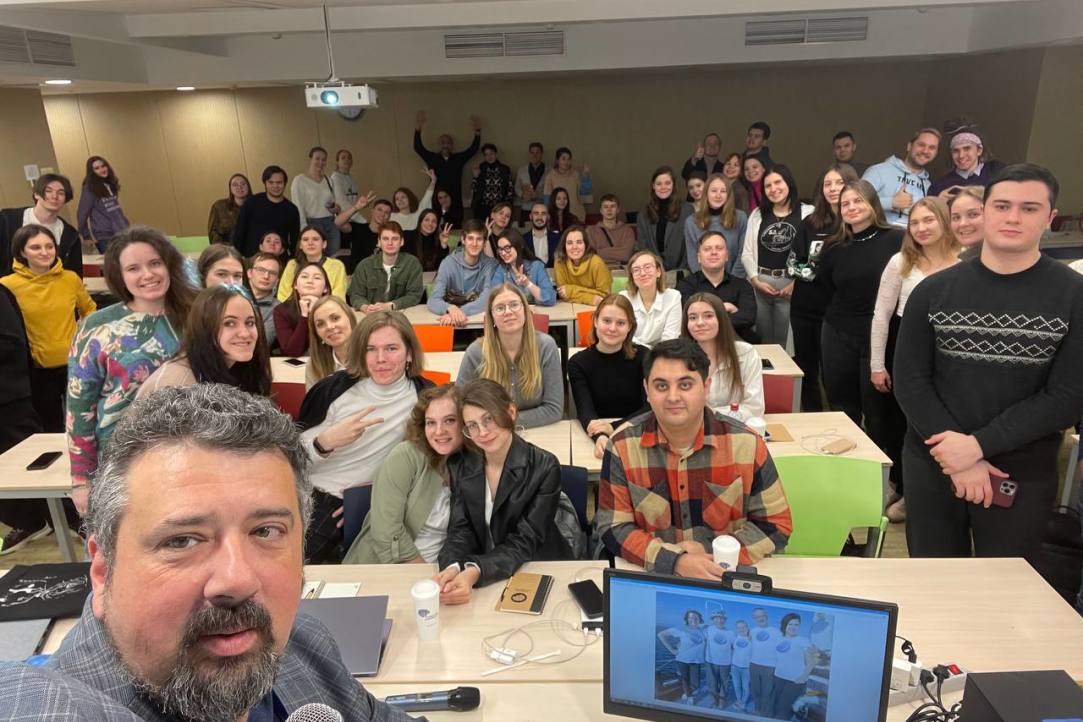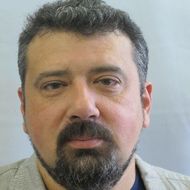HSE Co-organises Floating University

Floating University is a national project to help students and young scientists immerse themselves in Earth science research and undertake an expedition aboard a research vessel. However, anyone interested in taking part must first go through the training and selection process. For those who dream of going on a scientific voyage, there is a winter school co-organised by HSE University.
This year, the programme was held at nine venues of leading scientific and educational institutions in seven cities: Vladivostok, Astrakhan, Rostov-on-Don, Moscow, Sevastopol, St Petersburg and Kaliningrad. For the first time, one of the tracks was hosted by HSE University. The Laboratory of Media Communications in Education, part of the Faculty of Creative Industries, arranged sessions in the field of science and educational communications.
The track announced by HSE University was the third most popular with applicants, receiving almost 350 applications. The organisers selected 118 people to participate in the full-time stage: science communicators, researchers, press officers of universities and research institutes, and early-career scientists who want to learn how to talk about their research simply and clearly.
The participants spent three days listening to lectures and attending workshops by specialists from the Laboratory and guest experts. Grigory Tarasevich, editor-in-chief of the popular science magazine Schrödinger's Cat, talked about how to write about scientific topics without being boring. HSE University lecturer Ekaterina Lozovik held a workshop on social media storytelling. Anna Dzarakhokhova, Head of the Popularisation of Science and Technology at the Russian Ministry of Science and Higher Education, gave a particularly useful presentation explaining how to communicate with press services and promote important information in various publicity groups.
Ekaterina Tereshatova, Laboratory expert and editor-in-chief of Direktor Shkoly (‘School Director’) magazine, revealed which mistakes to avoid when preparing interviews. Yulia Smirnova from the Association of Floating Universities dissected modern social media and messengers, outlining which services are the most effective for posting information. Alexander Milkus, Head of the Laboratory, demonstrated technologies that can be used to identify fake news online. There was also a lecture by Anastasia Chesnokova, a Laboratory expert, where participants discussed how to define the target audience for their blog or scientific projects.
The lectures and workshops were followed by a Q&A session. Representatives from different regions got to know each other and built a scientific community of those passionate about the sea.

Alexander Milkus
‘It is important that so many people want to go into science. It is also important that they are willing to learn and communicate with their older colleagues. They are interested not only in working as scientists themselves, but also in inspiring others to join them. Even five years ago, I heard people saying that nothing would come out of the Floating University project because there seemed to be no “middle” generation with relevant experience. And now we’ve got a community of expedition specialists who made this winter school such a fun and effective event!’
Participants of the 2023 Floating University winter school met each other in Moscow’s huge Moskvaarium aquarium to socialise and make new friends. There was also an improvised job fair where universities, research institutes, and research and production companies presented their projects and invited participants to apply for master's degrees, post-graduate courses, and jobs. This showed the participants that their studies were not in vain, that their experience and knowledge would be in demand, and that they would be able to find a job in their chosen scientific field.
Next comes the most exciting stage: the candidates will be shortlisted and the winners will begin to prepare for the voyage. This year's Floating University expeditions are planned to take place in the Arctic, the Baltic, the Far East, the Black Sea, the Caspian Sea, and Lake Baikal.
See also:
HSE Faculty of Computer Science Holds 3rd Winter School in Software Engineering
For the third time, HSE University Faculty of Computer Science has held a winter school in software engineering, with over 1000 participants registering for the event. Representatives from the Faculty of Computer Science and its partner companies, including Yandex, Sber, Tinkoff, and MTS, delivered lectures at the school.
‘Anybody Who Does Not Believe in the Importance of Sustainable Development Should Visit India’
In January 2024, HSE students from Moscow, St Petersburg and Nizhny Novgorod took part in the Winter School ‘Business and Governance in India’, hosted in Dehradun by the University of Petroleum and Energy Studies (UPES). Having now completed the course, its attendees—participants of the Master’s in Sustainable Business Management at HSE Graduate School of Business—shared their impressions with the HSE News Service.
HSE University’s Faculty of Computer Science to Hold 2024 Winter School on Software Engineering
On February 26–29, 2024, HSE University’s Faculty of Computer Science will hold a winter school on software engineering for the third time. It will focus on modern software development tools and methods. From February 26 to 28, the school will be held online, and on February 29, it will take place at the HSE University building on Pokrovsky Bulvar in Moscow. Those interested can register to participate until February 22.
HSE Faculty of Computer Science Holds Second Winter School on Software Engineering
This year, 625 applications from 90 cities were submitted to participate in the second Winter School on Software Engineering at the HSE Faculty of Computer Science. The main topics were software architecture, mobile development, digital twins, artificial intelligence, cloud services development, API, technical debt, QA, software systems, Flutter, and distributed systems.
‘When I Learned to Implement My Ideas in a Program, I Understood Why It Was Worth Coming to University’
On February 15–17, the HSE University Faculty of Computer Science will hold a winter software engineering school aimed at sharing and exchanging knowledge about modern tools and methods in software development. Those interested in taking part must register by February 12. The HSE News Service spoke to students of the Faculty of Computer Science about their studies on the Bachelor’s programme in Software Engineering.
Thin Ice and a Field of Thorns: Master Class in Acting Held at HSE University
On January 17, the HSE Film Institute held a master class for applicants and students of the university. The author and instructor of the class was Igor Skripko, theatre and film actor, curator and teacher of the Actor Intensive preparatory programme. Prospective students had the opportunity to find out how to apply to the Theatre and Film Actor specialist’s programme.
HSE Faculty of Computer Science Organises Its First Software Engineering Winter School
From February 14–18, the HSE Faculty of Computer Science organised its first international winter school dedicated to software engineering. The event was supported by JetBrains, Innopolis University, and Schaffhausen Institute of Technology.
HSE Graduate School of Business Holds Crash Course for Prospective Master’s Students
The HSE Graduate School of Business conducted a unique two-day online winter school with cutting-edge teaching and learning practices: case methods, design thinking, and business games. Participants from 16 countries took part in free workshops by business professionals and earned extra points for admission.
Deconstructing the Constant Reshaping of Russian Identity and Memory Policy
From October 23 to 29, 2017, the Department of Public Policy at the Higher School of Economics held a weeklong Winter School dedicated to the subject of the ‘Russian historic memory: in search of identity’. Participants from four continents came together in Rostov Veliky, one of Russia’s oldest and most historical cities.
'The Winter School Is What Led to My Firm Decision to Go to HSE'
On February 4-8 of next year, the Faculty of Mathematics is hosting a Winter School at Voronovo, a special conference centre in the Moscow region with lodging and recreational facilities.


